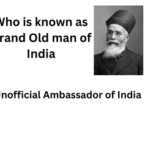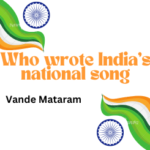Supreme Court on the scope of freedom of speech of public functionaries: Basics Explained

A statement made by a minister cannot be attributed vicariously to the government by invoking the principles of collective responsibility, the Supreme Court .
Ruling out any additional restriction on freedom of speech of public functionaries, the Supreme Court on Tuesday said that ministers, MPs, and MLAs enjoy freedom of speech in equal measure as other citizens under Article 19(1)(a) of the Constitution, Bar and Bench reported.
A Constitution that like any other citizens, no additional restrictions, other than those prescribed under Article 19(2) of the Constitution, can be imposed on a public representatives under right to freedom of speech and expression.
The court delivered the judgment after hearing a batch of pleas relating to the scope of freedom of speech of public functionaries, and whether greater restrictions can be imposed on their right in the greater interest of citizens and their right to life and personal liberty.
The apex court also ruled that statement made by minister related to government or its affairs cannot be vicariously attributed to the government.
Justice BV Nagarathna in a separate judgment, dissented with the majority view, held while freedom of speech and expression is a much needed right so that citizens are well informed and educated on governance, it cannot turn into hate speech.
LEARNING FROM HOME/ FROM CLASSES/ BASICS
Article 19 in The Constitution Of India
The idea behind this article is to give voice to the Indian citizen the license to express thoughts with some reasonable restrictions.
The principle behind freedom of speech and expressions is as under:
- Only the Indian citizen has the liberty to enjoy this right, the right isn’t given any foreign citizen.
- This right gives liberty to express one’s view through any medium e.g.:-by words in writing speaking, in pictures etc.
- Since the freedom of speech and expression is not an absolute right, the government is given powers to frames law for and against it
- Protection of certain rights regarding freedom of speech etc
(1) All citizens shall have the right
(a) to freedom of speech and expression;
(b) to assemble peaceably and without arms;
(c) to form associations or unions;
(d) to move freely throughout the territory of India;
(e) to reside and settle in any part of the territory of India; and
(f) omitted
(g) to practise any profession, or to carry on any occupation, trade or business
(2) Imposes reasonable restrictions on the exercise of the right conferred by the said sub clause in the interests of the sovereignty and integrity of India, the security of the State, friendly relations with foreign States, public order, decency or morality or in relation
to contempt of court, defamation or incitement to an offence
Although Article 19 does not express provision for freedom of protest but the fundamental right of the freedom of protest implicit in the right the freedom of speech and expression.
There is no general legal definition of hate speech. The Law Commission of India’s report on Hate Speech in 2017 highlights various examples from the past where the courts have looked into the scope of hate speech and have passed judgments.
The Supreme Court of India in Shreya Singhal v. Union of India had differentiated between three forms of speech, discussion, advocacy and incitement.
It was held by the Court that a speech can only be limited on grounds of
exceptions mentioned in article 19(2) when it reaches the threshold of
incitement. All other forms of speech, even if offensive or unpopular have to be protected under Article 19(1)(a). Incitement is the key to determining the constitutionality of a restriction on free speech.
Other provisions
Section 153A IPC penalizes ‘promotion of enmity between different groups on grounds of religion, race, place of birth, residence, language, etc., and doing acts prejudicial to maintenance of harmony.
Section 153B IPC penalizes ‘imputations, assertions prejudicial to national
integration.
Section 295A IPC penalizes ‘deliberate and malicious acts, intended to outrage religious feelings of any class by insulting its religion or religious
beliefs.
Section 298 IPC penalizes ‘uttering, words, etc., with deliberate intent to
wound the religious feelings of any person’.
·Section 505(1) and (2) IPC penalizes publication or circulation of any
statement, rumor, or report causing public mischief and enmity, hatred, or
ill-will between classes.
The Representation of The People Act, 1951
Section 8 disqualifies a person from contesting election if he is convicted
for indulging in acts amounting to the illegitimate use of freedom of speech
and expression.
Section 123(3A) and section 125 prohibits the promotion of enmity on grounds of religion, race, caste, community, or language in connection with election as a corrupt electoral practice and prohibits it.
The Protection of Civil Rights Act, 1955
Section 7 penalizes incitement to, and encouragement of untouchability through words, either spoken or written or by signs or by visible representations or otherwise
Freedom of speech and expression has been established as a key freedom required for sustaining democracy. However, with every right comes responsibility; and therein, is the need for a limitation on the right to freedom of speech and expression so as to prevent the destructive and regressive effect it could have.
The founding fathers of our Constitution were cognisant of the history and
the need to highlight the responsibility attached to freedom of speech and
expression. Thus, there is a need to convince and educate the public on the
responsible exercise of freedom of speech and expression.





0 Comments